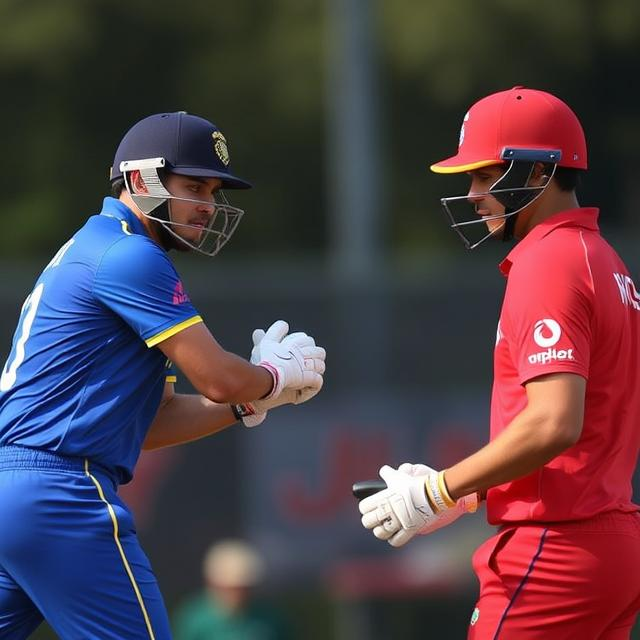The Best Captain of Pakistan Cricket Team: A Deep Dive
The Best Captain of Pakistan Cricket Team: A Deep Dive into Leadership and Success
The Pakistani cricket team has produced some truly iconic captains, each leaving their mark on the sport. But when we talk about the “best,” we’re delving into a complex discussion, exploring factors like leadership style, team management, match-winning performances, and even the broader context of the era in which they played.
Deciding on a single “best” is inherently subjective and open to debate. This article attempts to offer a comprehensive exploration, considering the strengths and weaknesses of several key figures to provide a more nuanced and engaging perspective.

A Look at the Leading Contenders
Let’s examine some of the most discussed and influential captains in Pakistan cricket history. This is not simply about statistics; we’ll delve into the human element, the qualities that made them effective leaders, and how their leadership styles differed, or in some cases, were strikingly similar.
Imran Khan: The Visionary
Imran Khan, a towering figure in Pakistani cricket and beyond, led Pakistan to its only World Cup win in 1992. His passion and unwavering belief in his team inspired countless players. He led with a charismatic style, and while not always the most tactically astute, his ability to inspire and motivate during moments of immense pressure is undeniable. His captaincy often involved a powerful blend of strategy, emotion, and audacious risk-taking, a trait that both propelled his team to victory and sometimes led to defeats.
Analyzing his tenure reveals the impact of a captivating personality on team morale. His leadership was arguably more of a philosophy than a rigid set of tactical rules. He inspired a spirit of courage, which was instrumental in victory, but it wasn’t without its challenges.
Wasim Akram: The Pace Maestro and Captain
Wasim Akram, arguably Pakistan’s greatest fast bowler, also had spells as captain. His leadership often revolved around the aura of excellence he commanded on the field. He possessed tactical acumen and a deep understanding of the game, although perhaps a sometimes-difficult personality during challenging times. He understood the importance of bowling and fielding as essential aspects of team building. His captaincy style reflected his exceptional skills in the field, but the team’s overall performance might have improved with a more focused approach to team coordination, which he may have been capable of improving over time.
Misbah-ul-Haq: The Steady Hand
Misbah-ul-Haq’s captaincy was marked by his meticulous approach to the game. His leadership was strategic and focused on consistency, building on the foundations of Pakistan’s Test success. He was meticulous in his analysis and planning and took his role seriously. His tenure was characterized by resilience and patience; sometimes this method could feel frustrating for fans seeking immediate results. He instilled discipline and belief in the team that consistently pushed them toward steady progress in test matches but his captaincy in ODIs and T20s proved less impactful.
Important Note: Analyzing past captains requires considering the differing standards and playing conditions of different eras. Comparing captains from decades apart needs careful evaluation.
Other Contenders:
Other worthy contenders for the ‘best’ include Inzamam-ul-Haq and Sarfraz Ahmed. Inzamam, a powerful batsman, brought grit and determination to the role, while Sarfraz’s leadership during a particular period showcased a particular approach. Each captain’s style reflected the unique dynamics of the time and the strengths of the respective playing squads.
Each captain faced different challenges, played in different eras, and navigated varying team compositions. In summary, identifying a single “best” is a complex task and depends on individual priorities and preferences, encompassing tactical brilliance, leadership styles, and broader success.
Beyond the Numbers: The Human Element
Success in cricket is rarely solely determined by statistics. The emotional intelligence, motivational abilities, and communication skills of a captain are equally crucial. Leadership transcends tactics, embracing the human side of the game.
A good captain fosters a positive team environment, motivates players during setbacks, and communicates clearly under pressure. He or she understands individual needs, and they must guide the team with empathy while maintaining a clear vision of the team’s objectives. Often, the most effective captains inspire players to give their best effort and achieve more than they thought possible, through their actions rather than words.

Conclusion: A Matter of Perspective
Ultimately, selecting the “best” captain of Pakistan is not a scientific exercise but a matter of personal opinion. Each captain brought something unique to the role, shaping their own legacy and demonstrating different facets of leadership. Imran Khan, Wasim Akram, Misbah-ul-Haq, and others all left an imprint on Pakistan cricket. The richness of Pakistan cricket lies in its diverse range of captains and their respective stories. Their experiences offer invaluable lessons on leadership in any field, a lesson worth exploring.
Considering the era, playing conditions, and personal qualities, we see a fascinating tapestry of leadership styles, strengths, and weaknesses. Choosing the definitive “best” is a difficult, but engaging, challenge for cricket enthusiasts.